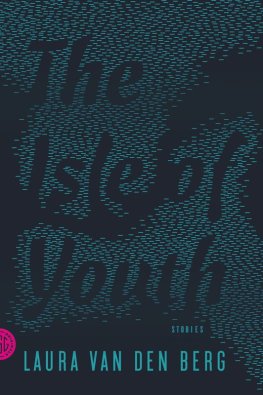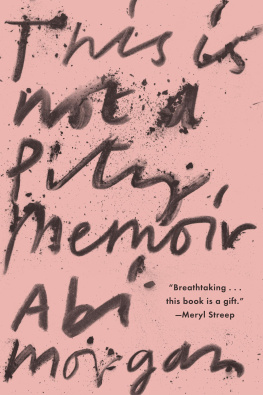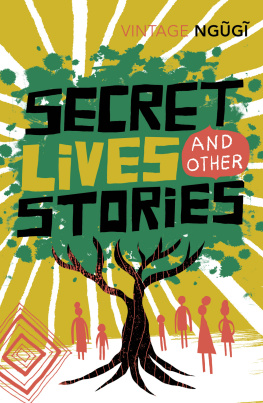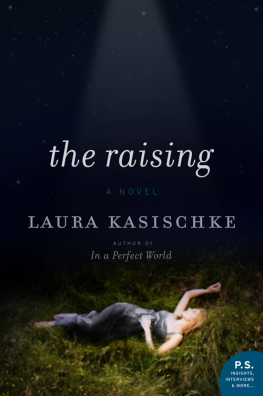Amy Gustine
You Should Pity Us Instead
To Erma, Charlie, Leona, and Henry for playing conductor and chauffer, for picking out the grapes and being the Solid Gold dancers, for telling me to put my fingers on ASDFJKL;
After they find out where she lives, they start coming every week, sometimes every day. Wednesday morning they come especially early, waking her. Rs mother stays in bed, yearning for coffee and the bathroom, but fearful of nearing the window. She knows what shell see below: her sons scrawny face imprinted on cheap poster board, hoisted on stave and dowel by protesters who misspell his name. Sometimes they use him to protest another prisoner trade, sometimes to support it; sometimes to urge settlements, other times to condemn those already built; to push for a two-state solution or to warn against it. Once they were protesting a tax, another time something to do with toilets. Rs mother doesnt want to know what theyre using her son for today. Reconciliation and revenge. Hostages and prisoners. Murderers and soldiers. It all sounds the same from up here.
She turns to the wall and pulls the blanket over her shoulder. Retired from her job as a nurse, she has nothing to do but think of R. What she thinks is that hes already dead. If not today, then tomorrow, or next year. And if were sure to die, then arent we already gone? Only time intervenes, and what is time? If you were a rock, there would be no time. Rocks do not die. It occurs to her symbols dont die either. As a symbol inert, permanent her son still matters.
Sitting up, she looks toward the street-side window. She ought to love the protesters. Whatever theyre protesting for, theyre keeping her son in peoples minds. But she cant love them. She doesnt give a damn about them.
Rs mother lies back down. What is the math of a mothers love? Infinity, she thinks. She would let everyone in the world burn for him. Including, and especially, Gilad Shalit.
They took R after Shalit, Israels common son, came home in exchange for 1,027 Palestinian prisoners. Terrorists, some say. Freedom fighters to others. Regardless, Hamas wanted more. It was six months ago that they grabbed R under cover of tear gas near the Gaza border. The pain of his capture has not attenuated. Instead, it is like a cancer swimming through her veins to plant pieces in every pocket of self: her eyes, her ears, her taste, her dreams.
Rs mother is sliding against the wall, staying clear of the window on her way to the bathroom, when something smacks the outside of the building. Enraged, she rushes toward the window, about to yell bomb just to make them stop jousting with his face. That face, that name, belong to her. To hell with them. But before she can speak, a few words break free of the crowd. Muslim. Tape. Proof.
She slams the window and turns on the TV, channeling past women singing and a show about desert climates to a local news program. Hamas has released a videotape of R in which he claims to be converting to Islam. His mother barely registers these words. She is staring at the newspaper her son holds, a British paper dated just last week.
The possibility that an Israeli soldier is becoming a Muslim takes hold of the country. The protests become larger, the pundits more strident. One morning Rs mother is watching a local channel broadcasting a protest outside her own window. A banner, painted in slurred red letters, reads: A Jew is worth a thousand Muslims. A traitor is worth a thousand deaths.
She finds a pair of scissors and cuts the TVs power cord.
For a month she doesnt go out, doesnt answer the phone, doesnt read the newspaper or turn on the radio. A boy in the building goes to the market for her, a boy who can be counted on never to ask how shes feeling or what she thinks about the tape. Like a prisoner herself a prisoner of uncertainty, of history, of other peoples prejudice she spends her time reading old novels, their familiar stories a great comfort. No more surprises.
Then one Friday afternoon she is forced to venture into the street because her cousins daughter has had a baby and there is a party. No protesters are about, but she dons a disguise anyway old glasses, a hat, her nurses uniform to walk the ten blocks to her cousins house. When she arrives, an aunt on the babys fathers side, a woman she has never met before, shakes her head sympathetically and says she heard what they are saying about R. Dont worry, the woman assures her. We all know it isnt true. It is impossible for a Jew to become a Muslim. Muslims are dogs. She lights a cigarette and puffs. Putting a collar on a human doesnt make him a mutt.
The other women in the room blanch, casting silent apologies to Rs mother, who returns their pained expression with a neutral stare, as if she doesnt know what the problem is.
As a distraction, someone asks the new mother how her labor was. Long, she says, and lots of back pain. This sparks a round of birth stories. The new mothers trials are trumped first by a mother allergic to pain medication who delivered a ten-pound girl, then by one who gave birth in the hospitals waiting room. Finally, a tiny woman tells of delivering twins on a moving bus. She wins, yet the stories continue strange places, strange pains, rude medical staff. Rs mother remains silent. Her birth story cant be told.
On the way home, she passes a caf she used to like and glances in the window, thinking of their pastries. There, on a TV monitor hanging from the wall, is her son, his features digitally removed from the structure of his face and superimposed on a missile embossed with the star and crescent. Grabbing the door from a young couple stepping out, she goes inside. One of the pundits, a chubby man with a bad comb-over, is saying it doesnt matter whether R has converted to Islam or not. He was born a Jew, so he is a Jew. We must get him out.
Rs mother thinks of the blood-lettered banner, the old woman at the party. What would they say if they knew the truth? Its only a matter of time before a journalist goes digging before the truth creates lies, and lies become facts.
At home she packs quickly, a change of clothes, a few toiletries. Then she gathers pictures of R. Recent ones, in which hes recognizable one on his fifteenth birthday with his favorite red shirt, one at the beach, one from high school graduation but also older ones, to show him at his most vulnerable. On his seventh birthday with both front teeth missing. On the day he took his first step, his hands flung in the air, his expression shocked and joyful. Finally she takes the first picture of all in which he isnt even visible. Only she can be seen, standing outside an airplane bound for home, holding something wrapped in a yellow blanket.
She leaves behind the picture of R in his IDF uniform, his long-toothed smile hidden in an ambivalent twist of the lip, his eyes lost in the shadow of an Israeli flag unfurled at the edge of the frame.
As her plane descends into Cairos International Airport, Rs mother looks down on the glittering high-rises lining the Niles shore, then inland, to the raw-concrete workers homes, squatting in twilight. To the east is the City of the Dead, crumbling, necropolitan mustards, and to the west the dark, ancient deserts of Gizas tombs, so singular and grand they strike her not as burial plots, but as alien settlements. Everywhere there are minarets, looking from above like missiles. As they near the earth, a few small crosses appear, then smokestacks, antennas, and satellite dishes, then finally bags and bags of garbage held in check by brick walls.
Her plane lands, opening to air that smells like home, hot and dusty. She wears black to blend in with the married women. The customs official examines her blue passport closely, but it doesnt arouse suspicions. Her last name is common in Israel, one of the favorites for immigrants looking to shed their European identities.










